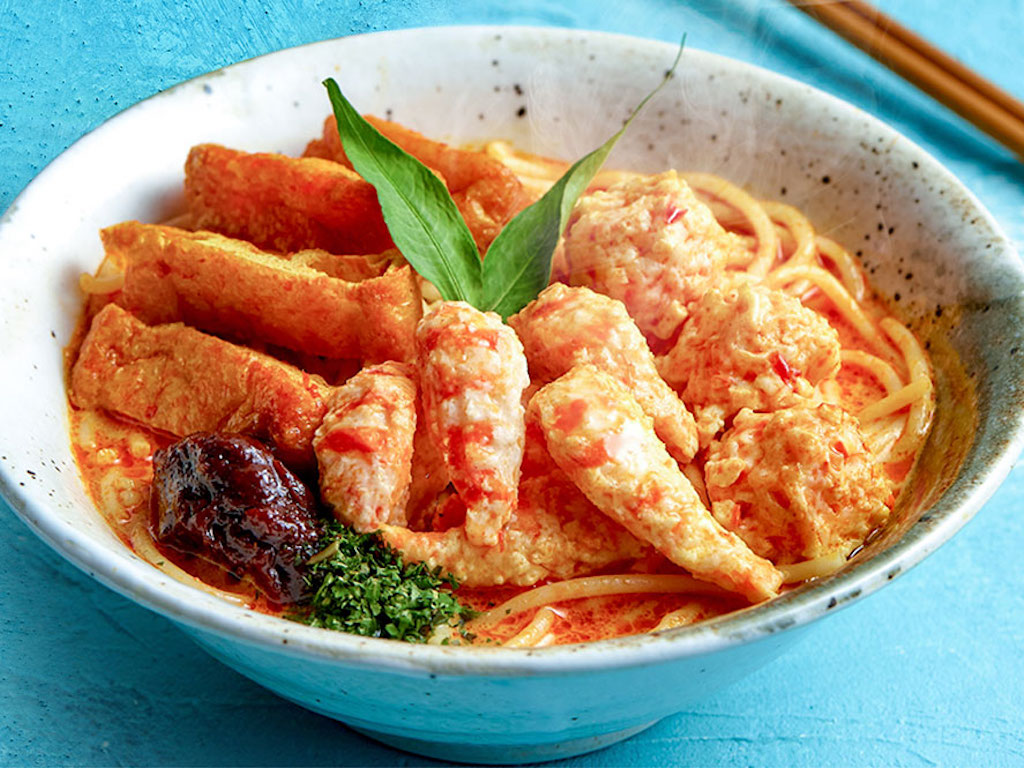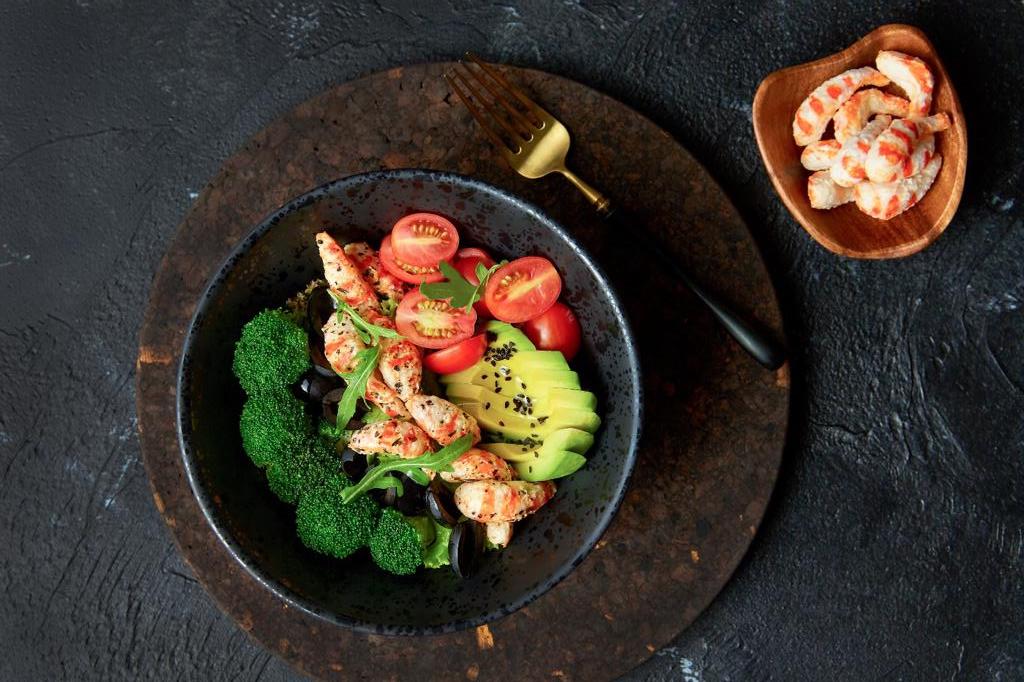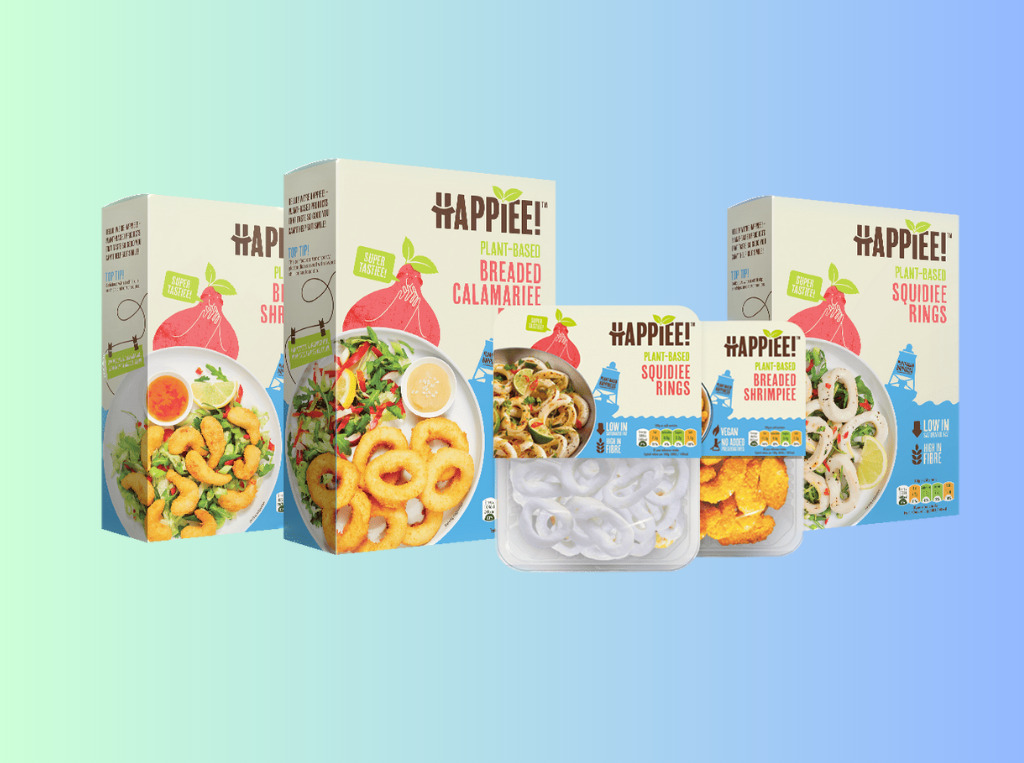Singapore’s HAPPIEE! Launches Vegan Shrimp & Squid With British Retailers Tesco and Ocado
3 Mins Read
Singaporean plant-based brand HAPPIEE! – a subsidiary of Growthwell Foods – has secured listings with UK retailers to introduce its vegan frozen seafood range to the market. The company’s plain and breaded seafood alternatives are already available at online retailer Ocado, and will launch at Tesco – the UK’s largest supermarket – next month.
Launched in 2022, the brand has already been available at multiple retailers and restaurants in Singapore with its range of soy-based chicken nuggets and popcorn. Now, it makes its UK debut with a range of vegan seafood – the country is Europe’s second-largest consumer of plant-based seafood – which includes breaded and plain shrimp, breaded calamari, and squid rings. Additionally, HAPPIEE! is also introducing one non-seafood alternative, a vegan lamb shawarma.
Capitalising on frozen

All the seafood products contain tapioca, konjac flour and potato starch, and are free from soy, trans fats and GMOs. HAPPIEE!’s parent company, Growthwell, already has a portfolio of multiple plant-based food brands. It secured $22M in a Series A funding round in November 2021, while opening a new innovation centre to scale up research and development for plant-based meat and seafood.
The products are available for purchase at Ocado and will be on 364 Tesco shelves next month, before a more widespread expansion planned for January 2024. It comes as the frozen food segment sees continued growth in the UK. According to Tesco, 31% of British adults bought more frozen food at the end of last year, and they will continue to do so this year. Additionally, 19% who had not previously bought frozen food began purchasing it to save money.
“Our aim is to foster a continued shift towards eco-friendly choices, reducing our dependence on the seas for a sustainable future,” said HAPPIEE! commercial manager Rosie Bambaji. “We’re on a mission to bring genuine change to the category, filling in the gaps so that flexitarians and vegetarians aren’t missing out on their favourite dishes and cuisines.”
The problem with seafood

HAPPIEE!’s UK debut comes during a host of other developments in the global plant-based seafood sector. South Korea’s Unlimeat debuted its upcycled vegan tuna this month, while startups like Konscious Foods, Bluu Seafood and Hooked Foods have all received funding this year. Meanwhile, two European brands received a €1.5M grant to create 3D-printed mycoprotein to replace seafood.
According to industry think tank the Good Food Institute, pound sales for plant-based seafood grew by 40% year-on-year in 2022 and as of 2021, there were over 120 companies in the alternative seafood space (which includes vegan, fermentation-based and cultivated seafood).
The seafood industry is rife with environmental and human rights issues. The growing demand for seafood has led to overfishing and, subsequently, higher greenhouse gas emissions, while the heavy fuel use by ocean fishery vessels also contributes to the climate crisis. The 2021 documentary Seaspiracy details the endemic issues attached to this sector.
“The average consumer is becoming more aware of animal welfare and sustainability,” Maarten Garaets, alt-protein managing director of seafood giant Thai Union, told Green Queen in May. “And this is becoming a more important part of the selection criteria when they are buying food, but this is still a very small group.”
He added: “Alternative seafood is a new category, with limited awareness, whereas meat is more established. However, seafood is bound to catch up soon. Health is less of a concern for seafood, whereas sustainability will be more of a lever.”




